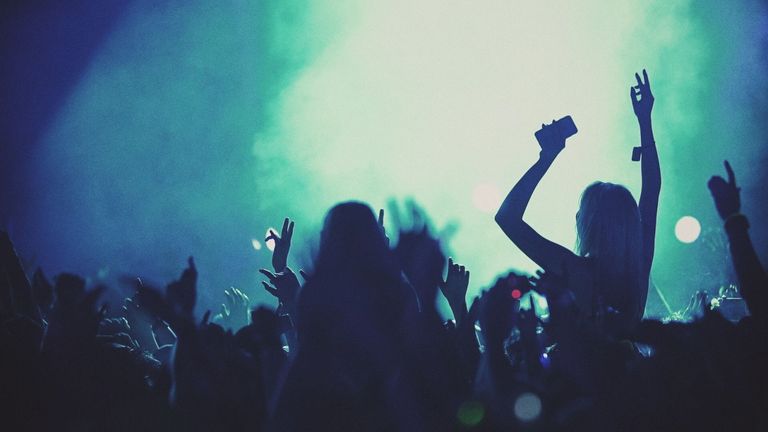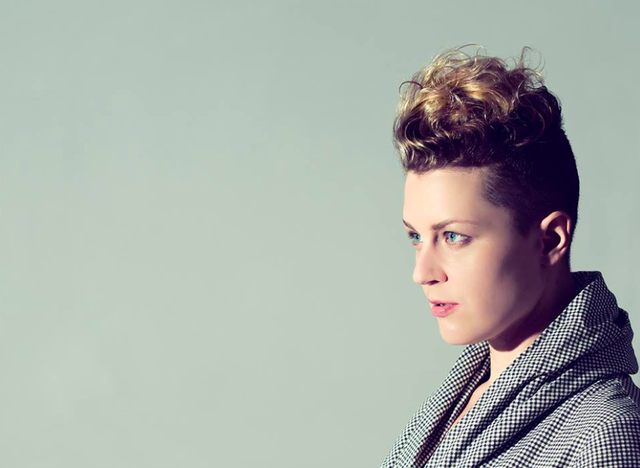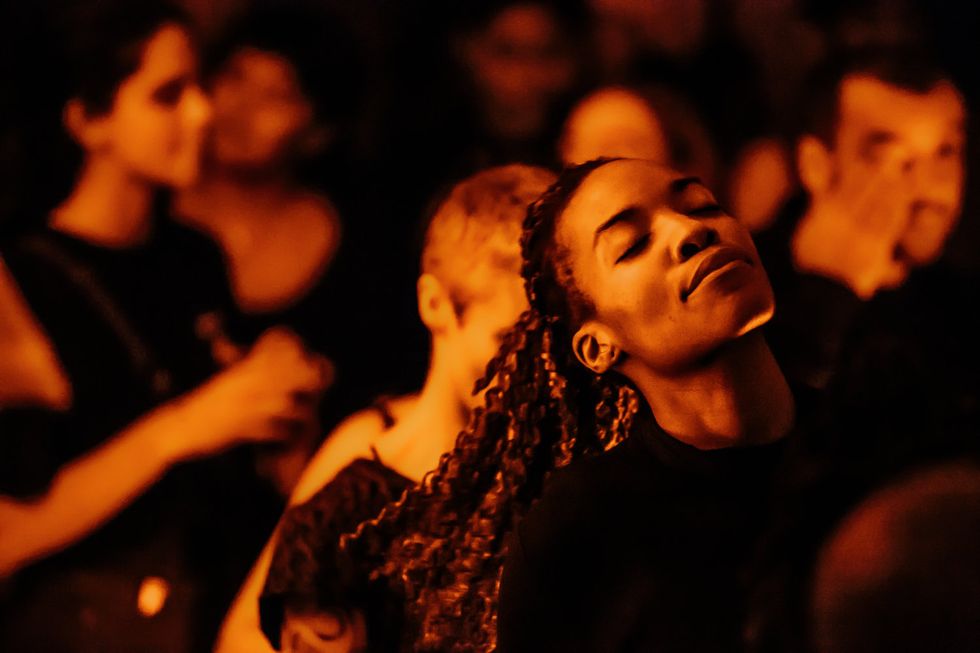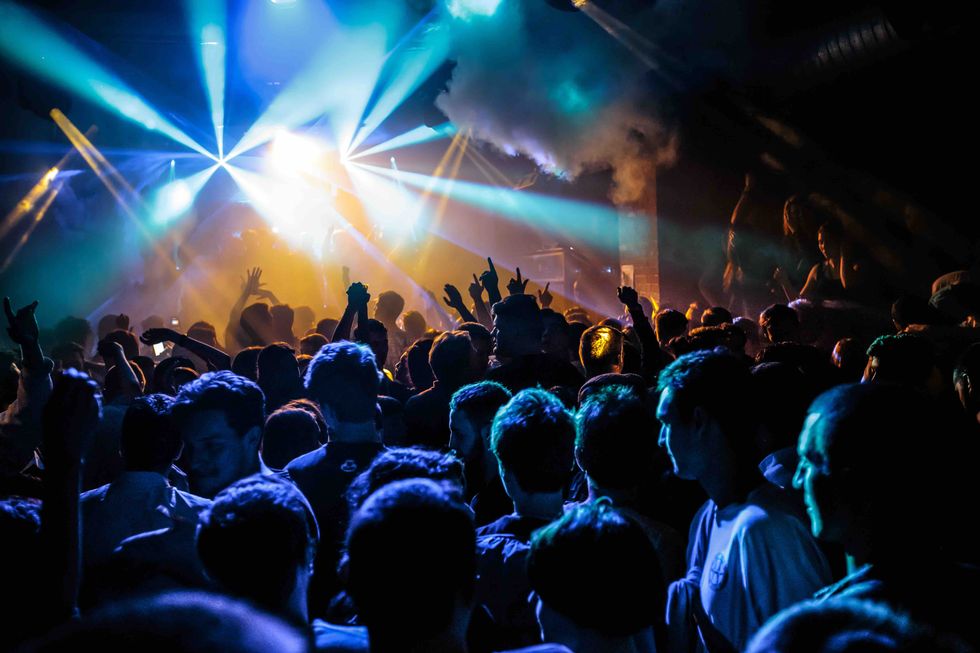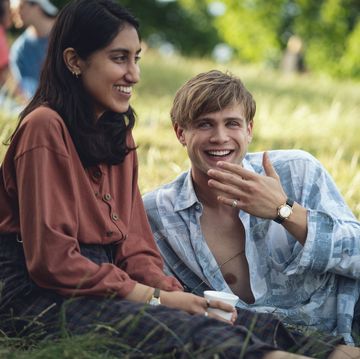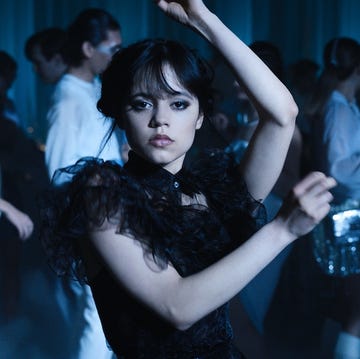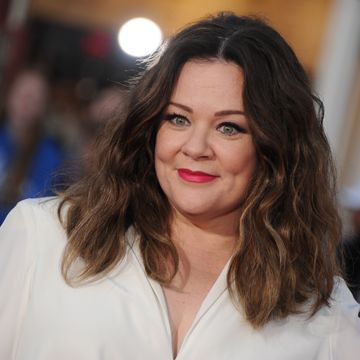I've worked as a music photographer for the last ten years. Last month, however, I decided to quit the music industry for good. Why? I was fed up. Fed up of hearing my friend's horrific stories, of experiencing similar situations myself and knowing there's one set of rules for men, and another for women.
I was resident photographer at Fabric, the famous London nightclub, for ten/eleven years and never had any issues. That club is really special – it's very inclusive and they don't stand for any nonsense. It was only when I ventured outside of Fabric that things started to get sketchy. Even though it was a tiny number of men I worked with, it was enough to scare me away.
A few years ago, for example, I was chased out of a festival by an artist whilst I was working for other clients. He tried to get security to remove me and then, when that didn't work, he actually ran me out of the tent. I'd go to other festivals and the same thing would happen again: I was chased out of a pit that I had permission to shoot in and was told to delete all my pictures.
At the time, very few people helped me. And nearly everyone surrounding this artist chose not to support or talk to me afterwards, simply due to industry politics. It got to the point where, if I was working at the same festival as this guy, I'd get very anxious because I'd be on my own, wandering around, and I thought 'I can't actually do anything stop this.'
This artist is quite powerful [within the industry] and told everyone not to work with me. But he is just one of many. A female stage manager relayed stories of how she refused the advances of a few guys and they subsequently told everyone to avoid working with her. Women are often ostracised out of the scene for this reason alone.
Another female DJ wrote an anonymous piece in The Guardian about how she uses a fake male manager to negotiate her business dealings and has since more than doubled her fees. On another occasion, one artist was all up in my face. I told him to leave me alone and later overheard him casually telling another girl how he'd been accused of rape. I've also heard stories of men putting their hands up skirts of female DJ's whilst they are playing and trying to forcibly kiss women without any warning or invitation. This is ultimately sexual harassment and it needs to stop.
In the end, I started to feel an underlying unease. I worried about whether if I was in danger, would these guys do the right thing?
Dance music, for the most part, follows the archetypal rock and roll cliché. Bad behaviour is accepted and people who speak up about it are ostracised. Even if you walk away from the situation, you still have problems which affect your future earnings and reputation. You're dealing with really big egos, and it just wears you down as a female. You get to the point where you think, why am I here? Do you actually appreciate what I do? I really love your music, is that not enough?
I don't go to after parties, I don't get drunk or high, but things like this affect me and in the end I finally admitted defeat. I don't want to take pictures of people who treat others so poorly. Some guys don't think you're there for the music: they think you're there to have sex with them or the DJ, and that's it.
I'd love it to change it, and it definitely is slowly changing, but someone pointed out to me that the two of the biggest female DJs in the scene have sex names: Madam X and Barely Legal. Both are great DJs but why are they marketed as such? Do women have to be sexualised by their name or looks to have value in this scene and wider music industry?
Listen up: women are backstage, and in the club, because they love music and you are not entitled to their bodies. I've been collecting records since I was a kid – I've got over 2000 now. What I love about my job is that I can listen to all sorts of music, and so many different DJs/Producers/MC's and artists. They're like fingerprints – unique and beautiful in there own ways and I've been so very privileged to be able to take pictures of that.
But we need people, high-up people, to be held accountable. It doesn't matter if you're a huge artist, if you chase someone out of places, threaten people, or affect someone's work, you need to be held accountable for that behaviour. People shouldn't just turn away and do nothing. But it also makes no sense to point fingers, we need to look at the conditioning at play here and attack that. Why are these guy's mothers, sisters, aunts, daughters, grandmothers treated with more respect? This attitude is deeply ingrained and stems from insecurity and our patriarchal society. Men should not be shamed but encouraged to question their behaviour.
If we keep shouting about it, we might make a change. I don't expect men and people in this industry to be angels, but I do expect them to be human.

